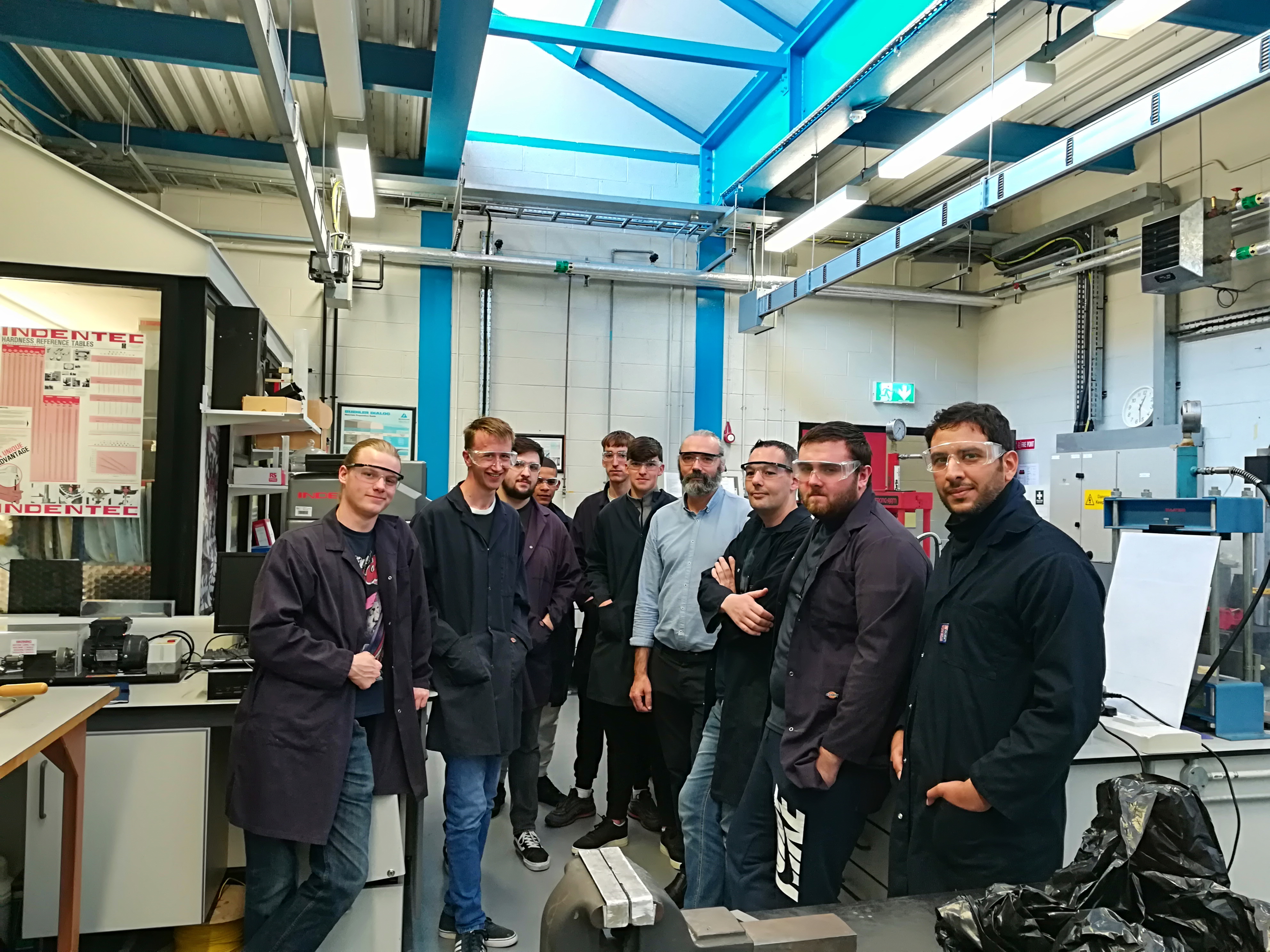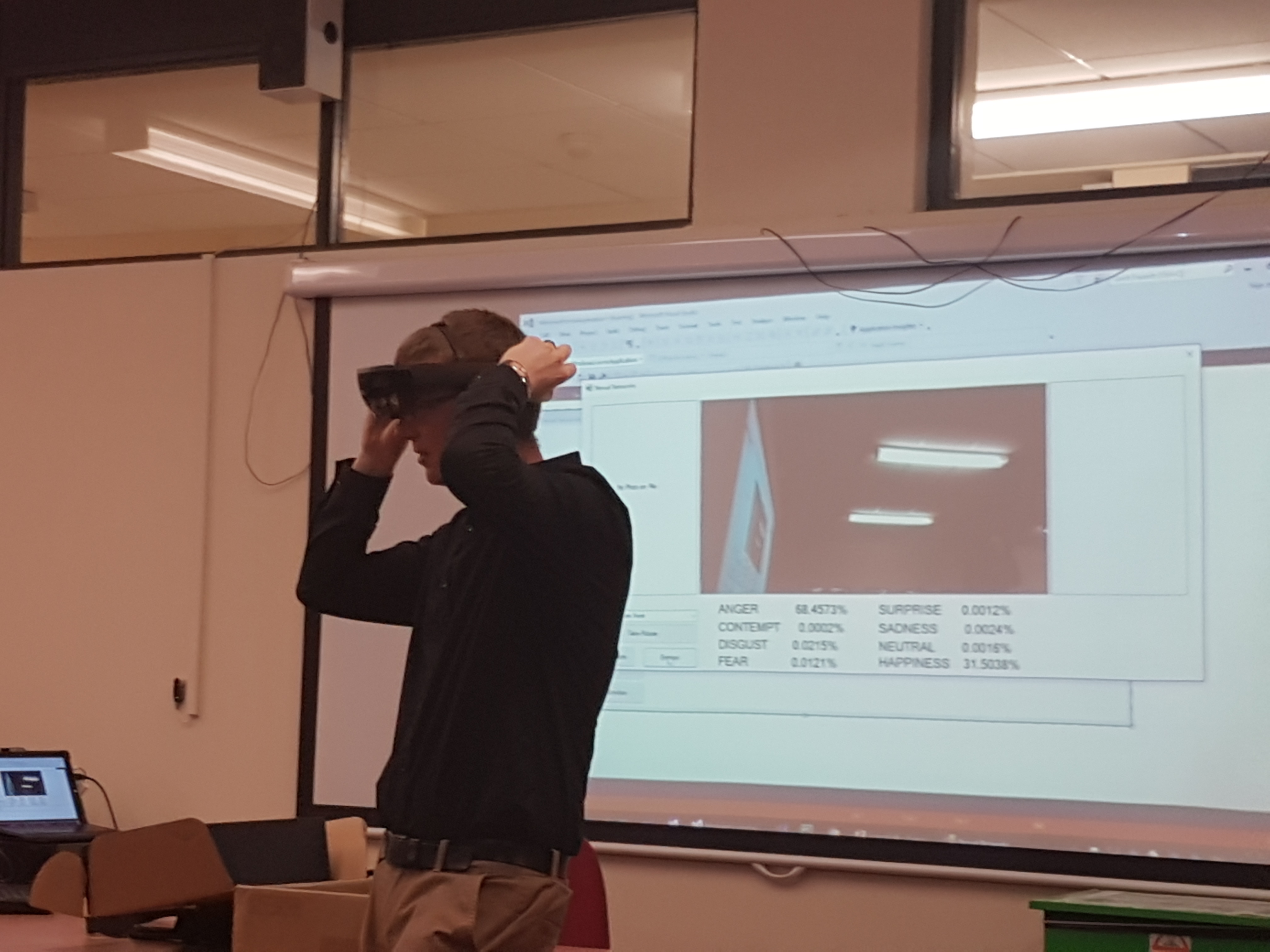Engineering Technology with Electronics
Level 5 QQI Award - Engineering Technology 5M2061

Duration
This is a Full-time One Year course which runs from Sept. to May. Exact details of the timetable will be given out to students during the induction process prior to class commencement in September.
Overview
Engineering is transforming how we live, work and study. Engineering is a highly diversified and exciting profession with a wide range of specialisms emerging as new technologies, business models and engineering challenges develop. From life-saving biomedical technology to energy-efficient housing, engineers are developing innovative solutions for the benefit of society. Today's engineering students will have the opportunity to work on technologies that have not yet been invented. For those who wish to embark on a career in engineering, this innovative course will prepare participants for entry into third level, through a range of practical and theoretical subjects.
Entry Requirements
One of the following:
- Leaving Certificate (LC Established, LCVP, LCA) or equivalent
- A Full QQI Level 4 Award (or equivalent)
- For Mature applicants (aged 21 or over) - appropriate experience will be considered in lieu of formal qualifications. Note: Mature applicants may be entitled to VTOS funding. For details about VTOS, please contact the college.
- Applicants whose first language is not English require level B1 competency on the CEFR language framework. Applicants may be required to undergo English language testing to establish their language competency.
- Engineering Workshop Processes
- Communications
- Work Experience
- Control Systems
- Electronics
- Computer Aided Drafting (2D)
- Mathematics
- The Internet
Engineering Technology with Electronics
Level 5 QQI Award: Engineering Technology 5M2061
Course Content (Module Names and Codes)
1. Engineering Workshop Processes 5N1608
The purpose of this award is to equip the learner with the knowledge, skill and competence to safely utilise a range of workshop tools and resources to produce components in an engineering workshop environment.
Assessment: Project (50%) and Skills Demonstration (50%).
2. Communications 5N0690
This module explores the role of communication in human interaction in theory and practice. Students are facilitated to gain relevant knowledge, skills, and competence to communicate verbally and nonverbally in standard everyday tasks and in work-related situations. Students will have the opportunity to develop important vocational related skills such as report writing, report reading, listening, and speaking skills (through oral presentation, interviews, group work) and modern information communication technology.
Assessment: Collection of Work (50%) and Skills Demonstration (50%).
3. Work Experience 5N1356
Students will prepare for work placement in their relevant vocational area through an evaluation of a personal skills set, the development of an industry type CV, interview preparation and practice. Current relevant work place legislation is also evaluated and assessed. An integral part of this module is developing skills required for a successful job search; and so, students are facilitated to secure a relevant work placement. On completion of the work placement (60 hours) the student will reflect, review and consider their future career options.
Assessment: Collection of Work (60%) and Skills Demonstration (Work placement 40%).
4. Control Systems 5N1437
The purpose of this award is to equip the learner with the knowledge, skill and competence to utilise microprocessor technology and control systems in range of industrial contexts.
Assessment: Project (60%) and Skills Demonstration (40%).
5. Electronics 5N1606
The purpose of this award is to equip the learner with the knowledge, skill and competence to design and safely construct electronic circuits.
Assessment: Project (40%), Skills Demonstration (30%) and Examination - Theory (30%).
6. Computer Aided Draughting (2D) 5N1604
The purpose of this award is to equip the learner with the knowledge, skill and competence to utilise computer technology as a design tool and a presentation media.
Assessment: Project (50%) and Portfolio/Collection of Work (50%).
7. Mathematics 5N1833
Learn the numerical skills that are going to give you the advantage in any business or marketing environment. These are also skills that you may need for third level progression. As part of your maths classes you will learn about all branches of maths, and will focus on applying maths to real life through studying topics like statistics and probability. Course content is similar to Leaving Certificate Ordinary Level.
Assessment: Assignments (60%), Examination - Written (40%).
8. The Internet 5N1611
The purpose of the award is to equip the learner with the knowledge, skill and competence to use the internet for communication, research, collaboration, e-Commerce and web authoring in a secure and confidential manner in a range of personal and work contexts.
Assessment: Project (40%), Skills Demonstration (30%) and Assignment (30%).
Certification
- Level 5 QQI Award Engineering Technology (5M2061)
Special Features
Experience the University Life
In January, the students are treated to a week-long opportunity in TU Dublin - Tallaght Campus to experience the facilities and taking part in Labs and lectures in the Electronics Department, as part of the Electronics module.
This course is supported by FIT, which offers students the opportunity to acquire essential skills to gain employment. Students are given training in job interview techniques and CV preparation.
Free Full Suit of Adobe Software for all students on this course for one year to facilitate assessment.
All DFEi students are provided with an M365 account, which gives them access to the tools and resources needed to deliver assessment work while attending their course. M365 Apps include Word, PowerPoint, Excel, outlook and OneDrive.
Work Experience
Students will be required to undertake a period work placement in an organisation connected to their vocational area during the academic year. Work Experience is mandatory for all of our full-time Level 5 courses. Students are required to source their own work placement but will be assisted in this by the work experience teacher. The work placement is usually for a period of 10 days or a minimum of 60 hours. Students usually find the work experience element of the course to be invaluable and should bear in mind that a successful work placement can sometimes lead to further opportunities.
Additional Information
Assessment
The following techniques will be used to assess the knowledge and skills that students will have achieved on successful completion of modules:
- Student Record
- Collection of Work
- Skills Demonstration
- Assignment
- Examinations (written)
- Project
All assignments are submitted electronically. Therefore all students need access to a device such as a computer/laptop.
A full major award is granted on passing the relevant eight components. On successful completion of each component, you will be awarded a pass, a merit or a distinction grade. See www.qqi.ie for more details
Progression Opportunities
DFEi: Graduates may progress to the QQI Level 6 Advanced Certificate in Software Development and Networking
Elsewhere: Graduates are eligible to apply through the CAO and/or the Higher Education Links Scheme for entry to year one of a range of higher certificate and degree programmes, at Universities, Institutes of Technology and Technological Universities using their full QQI Level 5 major award. Places are not guaranteed in these Institutes and are subject to students meeting certain criteria. It is the students' responsibility to consult with the relevant HEI for information on the admissions process and any specific entry requirements. Students may also refer to the individual HEI prospectus or may also refer to the QQI FET section of the CAO website. www.cao.ie
Examples of CAO progression opportunities are listed below.
Progression Examples
BEng Sustainable Energy and Environmental Engineering (TU702)
BEng Electronic Engineering (TU726, TU829)
BEng Mechanical Engineering (TU717, TU828)
BEng Electronics and Communications Engineering (TU714)
BEng Civil Engineering (TU704)
BEng Engineering (TU708, TU709, TU804)
BTech Networking Technologies (TU716)
Technological University Dublin - www.tud.ie
BSc in Product Design (MH305)
Bsc in Robotics and Intelligent Devices (MH306)
Maynooth University - www.nuimaynooth.ie
BSc Software Development Mobile Apps (AL705)
Athlone Institute of Technology - www.ait.ie
BSc Software Development (CW207, CW238)
BSc Aircraft Systems (CW507)
BSc Biomedical Electronics (CW577)
BSc Electronic Systems (CW558)
BSC Electronic Engineering (CW527)
BSc Aerospace Engineering (CW568)
Institute of Technology Carlow - www.itcarlow.ie
BSc Computing in Software Development (DK821)
BSc Computing in Games Development (DK820)
Dundalk Institute of Technology - www.dkit.ie
BEng Civil Engineering (GY402)
BEng Mechanical Engineering (GY405)
BEng Electronic and Computer Engineering (GY406)
BEng Electrical and Electronic Engineering (GY414)
Galway University - www.nuigalway.ie
Career Paths
Graduates have a wide range of career opportunities such as: network support, software development, electronic service technician, test and repair technician, electronic and computer engineering, access control installation.
Thank You
we will be in touch shortly
 “
“
Alvita Sandra Thomas
Class of 2023
About to start General Engineering in Trinity College
I absolutely had an incredible learning experience at DFEI. The guidance, support, and enriching teaching environment provided by the entire staff have played a vital role…
Read More ”Alvita Sandra Thomas
Class of 2023
About to start General Engineering in Trinity College
I absolutely had an incredible learning experience at DFEI. The guidance, support, and enriching teaching environment provided by the entire staff have played a vital role in shaping my academic and personal growth.
From engaging classes to a vibrant campus culture, I've cherished every moment at DFEI. The friendships formed and the opportunities I've had to learn and contribute have made my time here truly unforgettable.
I enthusiastically recommend DFEI to prospective students, confident that they too will benefit from the exceptional education and nurturing community that is provided.







